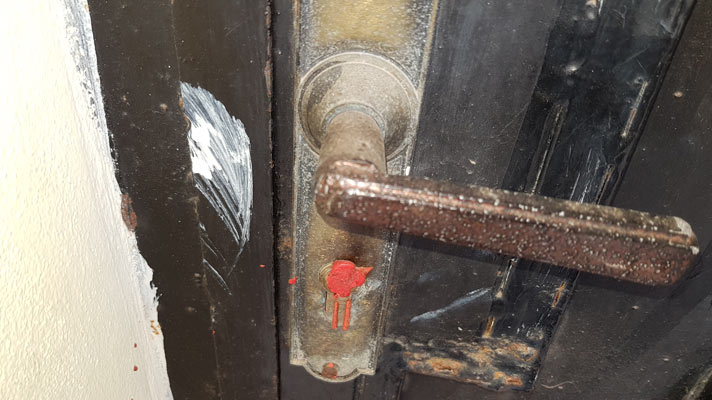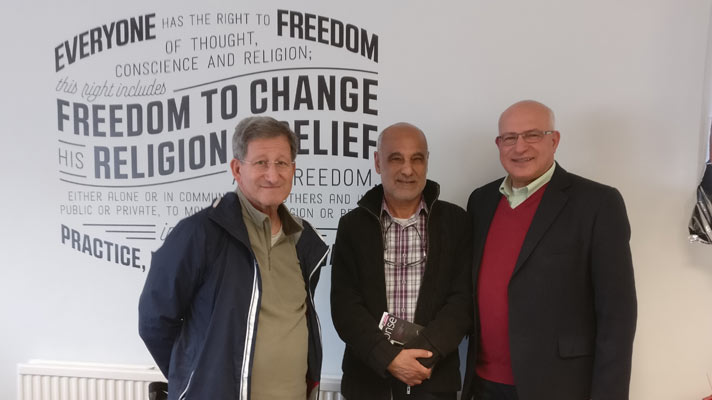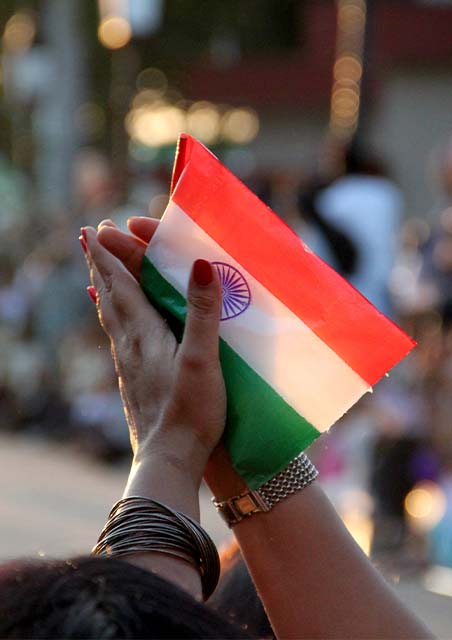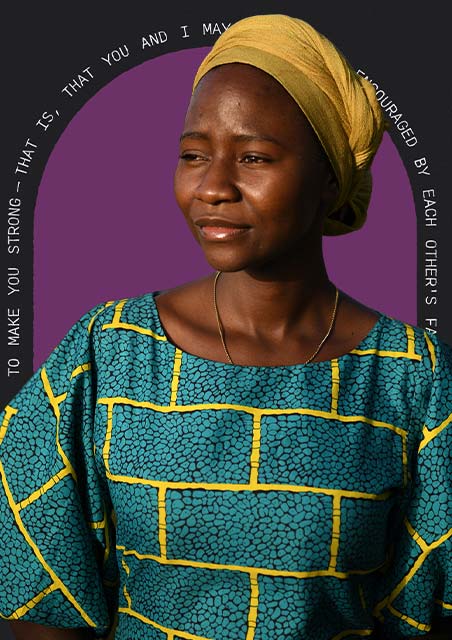Death by bureaucracy: the pressure facing the church in Algeria
The situation in Algeria is the worst it’s been in recent years. That’s according to Mustafa Krim, Ali Khidri and Youssef Ourahmane – three pastors from Algeria. They have been in the UK to ask that leaders lobby the Algerian government to stop its current crackdown on the mostly Muslim background church.
The situation in Algeria is the worst it’s been in recent years. That’s according to Mustafa Krim, Ali Khidri and Youssef Ourahmane – three pastors from Algeria. They have been in the UK to ask that leaders lobby the Algerian government to stop its current crackdown on the mostly Muslim background church.
The three pastors are leaders representing the Association of Protestant Churches of Algeria (L’Eglise Protestante d’Algeéie – EPA). They are seeking to ensure that Christians are provided for under Algerian law, that the laws are respected and implemented and that Algeria fulfils its commitment to freedom of religion or belief as stated in article 18 of the universal declaration of human rights. This international delegation started their tour in America where they met with officials from the Vice President’s office. They met government ministers and parliamentarians in Westminster before continuing on to France and to speak to senior EU officials. The pastors are lobbying for the deregulation of places of worship, official recognition for the EPA, an end to anti-proselytism laws, and freedom to import Christian materials.
REGULATION OF PLACES OF WORSHIP
In 2006 a new law stated that all non-Muslim places of worship must be authorised by the National Commission for Non-Muslim Groups. However the commission has never met. In the last 12 years no churches associated with the EPA have been authorised. Churches are therefore compelled to operate on an illegal basis and so are vulnerable to closure.
Churches have been closed not by one or two police officers, as would be appropriate, but by a team headed up by the most senior officer in that area. This heavy handed approach is to send a deliberate message. “It makes the neighbours believe that the church did something very serious,” said Youssef Ourahmane, pastor and founder of a large network of churches and Bible schools in Algeria.
Churches are allowed to exist – but only if they agree to the government’s rules. These rules ensure that churches cannot hold Bible studies, host foreigner preachers or even run a Sunday school and so very few churches agree to them.
 The keyhole of a closed down church sealed with wax
The keyhole of a closed down church sealed with waxANTI-PROSELYTISM LAWS
Vague anti-proselytising laws are being used arbitrarily and without due process to restrict lawful Christian activity and to intimidate Christians. It is illegal to ‘agitate’ a Muslim’s faith. “It means everything and nothing,” said Youssef. He believes the laws are left vague on purpose so that they can be used as needed.
A number of cases dating back several years have been revived, indicating a renewed campaign against Christians. On 1 March 2018, a Christian was informed that he had been convicted, in absentia, of illegal importation of Christian materials and given the maximum sentence of six months in prison and a fine of roughly £150. His ‘offence’ dated back to April 2016 when he returned from a visit abroad with a few Christian books and gift items with Christian inscriptions (crucifixes, keyrings, etc.) in his luggage. He is currently appealing the recent verdict.
IMPORTING CHRISTIAN MATERIAL
Christians face severe restrictions in importing Christian literature. For Christians to import books and other materials, import licences must be obtained with the approval of the Ministries of Religious Affairs, Foreign Affairs, Interior, and Commerce. Applications are routinely subject to delay, blockage and mismanagement. Only a small number of import licences have been granted in the last three years. With the growth of the Algerian church the demand for Christian materials is outstripping supply.
EPA REGISTRATION
The EPA is the umbrella organisation of all protestant churches in Algeria and has been officially recognised by the government since 1974. In 2012 new laws meant that the EPA had to reregister. Despite meeting all the legal requirements and applying for reregistration in 2013 the EPA is still yet to receive a response, meaning it lacks official legal status.
BUREAUCRACY
The bureaucracy created by the government is a very effective way of suppressing the church in Algeria. By regulating non-Muslim worship they can tell the international community that they allow freedom of religion as they have legislated for Christians. When in reality Christians are restricted and oppressed by the constant battle with forms, courts and the government.
Some Christians report difficulties in even registering their child after birth because they have given them a Christian name, like ‘Daniel’ which does not appear on the country’s official list of names. In some cases the battle to get a child registered lasts serval years and must go through the courts.
PREVIOUS SUCCESS
The pastors are optimistic that raising the issue of persecution with international governments will help Algerian Christians flourish. “I feel very positive,” said Ali Khidri, who has been a pastor in Algeria for 15 years. “Advocacy like this makes the government more willing to listen.”
Pastors from the EPA conducted a similar tour in 2011 when the government was cracking down on Christians through new laws. The international pressure from their advocacy stopped the persecution – at least for a while. Now the situation has declined again. Ali thinks that the Algerian government are worried by the large numbers of Muslims converting to Christianity. “We’ve seen incredible growth,” Ali said. “They don’t want to end up with two or three million Christians. That would be too much to control.”
 Left to right: Mustafa Krim, Ali Khidri and Youssef Ourahmane
Left to right: Mustafa Krim, Ali Khidri and Youssef OurahmaneA GROWING CHURCH
Most Christians in Algeria are converts from Islam. They come to faith through dreams, visions and Christian broadcasts. Churches send their sermons out of the country to be broadcast back into Algeria over satellite TV. The programme have contact numbers that you can call if you have questions or want to know more. “Just one of these phone numbers received 960 calls in one month,” Ali said.
But despite this growth the churches are necessarily getting busier. Many people are so afraid that they keep their faith hidden. Youssef shared how he regularly meet Christians who came to faith ten or 20 years ago but they had never met another Christian until they spoke to Youssef. “They were so scared and hidden they didn’t realise there were other Christians in the country,” said Youssef.
PLEASE PRAY:
- Protection over Mustafa, Ali and Youssef, their families and ministries
- For hidden Christians living out their faith in secret
- That God would use the Algerian church and they would have a great impact in Algeria, North Africa and the Muslim world.




